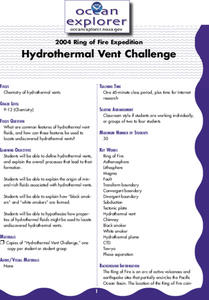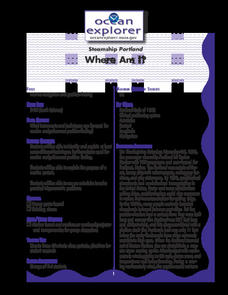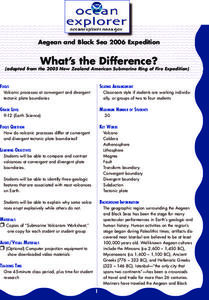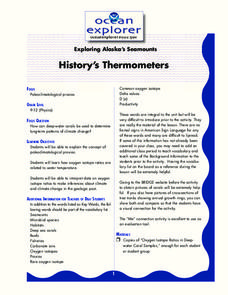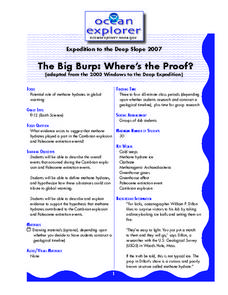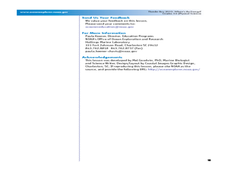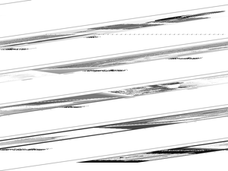Curated OER
It's Going to Blow Up!
Students discover the major characteristics of volcanoes on the Pacific Ring of Fire. They describe the processes that produce the "Submarine Ring of Fire." students explain the factors that contribute to explosive volcanic eruptions.
Curated OER
The Good, The Bad and The Arctic
Learners examine the impact of a major climate change in the Arctic Ocean on the rest of the world. They use the Internet to research the Arctic region and the wildlife that lives there.
Curated OER
The Volcano Factory
Students examine the process of tectonic plates and why the Mariana Arc is active with volcanoes. They create a model of the Mariana Arc out of clay.
Curated OER
Hydrothermal Vent Challenge
Students discover common features of hydrothermal vent fluids. They use this knowledge to locate possible undiscovered hydrothermal vents on the ocean floor.
Curated OER
Friendly Volcanoes
Students discuss the benefits of volcanic activity on marine life. They explain the process of tectonic plates.
Curated OER
What's Eating Titanic?
Students, in groups, research the bio deterioration of the Titanic. They write a report focusing on the rusting of the Titanic and estimate the amount of time it will take for the Titanic's bow section to completely dissolve.
Curated OER
Steamship Portland: Where's the Energy?
Students examine how steamships operate. They describe the necessary energy conversions. They construct a model paddlewheel ship. They use rubber bands as examples of potential and kinetic energy as they unwind and set the models in motion.
Curated OER
Where Am I?
Sudents examine the types of instruments that can be used for marine navigation and position-finding. They practice using an astrolabe to solve trigonometric problems.
Curated OER
X-Storms
Learners compare and contrast 3 types of extreme storms. They obtain real-time and historical meteorological data regarding 2 specific storms and then analyze the data to determine what type of storm each was.
Curated OER
Hot Food
Students compare and contrast photosynthesis and chemosynthesis as processes that provide energy to biological communities. They investigate the energy content of hydrocarbons used in coral communities.
Curated OER
Do You Have a Sinking Feeling
Students determine how marine archaeologists use historical and archaeological data to draw inferences about shipwrecks. Students plot the position of a shipwrecked vessel, and draw inferences about the shipwreck from artifacts that have...
Curated OER
What's the Difference?
Students investigate volcanic processes at convergent and divergent
tectonic plate boundaries. They read and analyze diagrams, complete a worksheet, and write an essay.
Curated OER
Tracking Narwhals in Greenland The Ocean Unicorn
Learners study the ecology, habitats, geographic range and feeding habits of narwhals. They determine at least three reasons for the decline in the narwhal populations and complete the accompanying worksheets.
Curated OER
Frozen Out
Students investigate how climate changes affect top predators in Arctic marine ecosystems. Students complete a worksheet and write a report based on their responses to a scientific paper.
Curated OER
The Good, The Bad, and the Arctic
Students investigate the social, economic and environmental consequences that might result from Arctic climate change. Students identify and discuss at least three consequences.
Curated OER
History's Thermometers
High schoolers explain the concept of paleoclimatological proxies. In this oxygen isotope lesson, students interpret data and make inferences about climate changes in the geologic past.
Curated OER
The Big Burp: Where's the Proof?
Young scholars research the evidence for prehistorically formed methane hydrates contributing to global warming. In this climate change lesson, students work in groups to research methane hydrates, global warming, The Cambrian Explosion,...
Curated OER
This Old Tubeworm
Students plot data to construct and interpret a graph about vestimentiferans at cold-seep sites in the Gulf of Mexico. In this deep sea lesson, students plot data provided for the growth of tubeworms. They use the graphs to determine...
Curated OER
What's the Connection?
Learners explain hardground communities in the Gulf of Mexico. In this deep-sea ecosystem instructional activity, students investigate the connection between deep-sea ecosystems and petroleum deposits. They discuss the relationship...
Curated OER
Where's the Energy
Students research energy conversions. In this energy lesson plan, students describe the basic operation of a steam engine. They explain the energy conversions in the steam engine's operation.
Curated OER
When Plates Collide
Students investigate tectonic plates. In this geology and geography lesson, students construct convergent, divergent, and transform boundaries using oobleck, foam, and tile. A large amount of background information and relevant...
Curated OER
Save Your Breath
Students discuss metabolism. In this metabolism lesson, students evaluate evidence form a research report and discuss the basis for hypothetical metabolic adaptations to low-oxygen environments in the anchialine caves.
Curated OER
Deep Lights
Students investigate materials that emit light. In this deep ocean lesson, students compare and contrast materials that emit light under certain conditions and infer the light-producing process. They explain three ways this evidence is...
Curated OER
Living Light
Students explain bioluminescence. In this life science lesson, students discuss bioluminescence and conjure examples of organisms that carry this trait and how it is useful in their environment.



